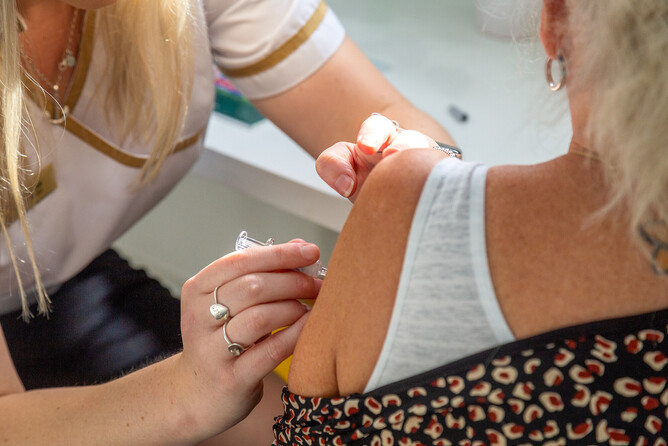The influenza vaccine (also called the flu vaccine) is used to prevent infection caused by the influenza (flu) virus. The flu can cause serious illness, especially in young children, older adults and people with chronic health problems, but anyone can become seriously ill from the flu virus. Even if you are not feeling sick, you could still be infected with the flu virus and pass it on to others. Read more about the flu.
Vaccination is the best way to prevent infection and reduce the seriousness of illness if you become infected. It will greatly improve your chances of not getting the flu, but it does not give 100% protection.
Being vaccinated causes your body to produce antibodies against the flu virus. This means your body can respond faster and more effectively to the flu. By first coming across a non-infectious version of the virus in the vaccine, it learns to recognise it. When it comes across it again, your body can react much faster and in a more effective way.
Even if you get the flu after being vaccinated, you usually get a mild form of it and recover faster, and are less likely to have serious complications.
Who should get the flu vaccine?
Anyone over the age of 6 months can have the flu vaccine. The flu vaccine is free for these people, who are considered to be at greater risk of complications from the flu:- Pregnant women (any trimester)
- People aged 65 years and over
- People under 65 years of age with with certain chronic conditions, such as chronic heart disease, chronic liver disease, diabetes, cancer, asthma and COPD
- Children aged 4 years or under who have been in hospital for respiratory illness or have a history of significant respiratory illness, including children aged 6–59 months (under 5 years) who were hospitalised with measles
Check with your doctor if you are uncertain about whether you qualify for a free flu vaccine.
The vaccination is also recommended (although may not be free) if you are in close contact with people with weakened immune systems, as these people may be less able to fight off the flu or are at high risk of complications from it. Frontline healthcare workers usually have the vaccine funded by their employer.




